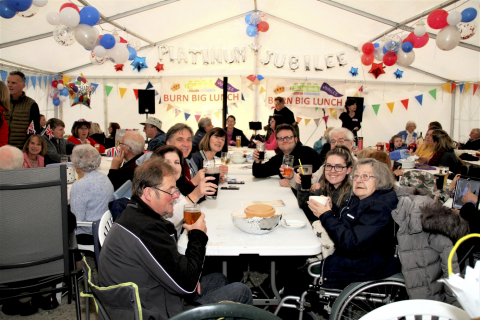

Fresh advice has been issued to help North Yorkshire residents enjoy the summer season safely following an increase in the number of COVID-19 cases in the county.
While COVID-19 cases had been decreasing across North Yorkshire since the end of March, the latest information from the Office of National Statistics has shown an increase over a two-week period in mid-June from one in 70 people being affected to one in 38 people, more than two per cent of the population.
The number of people in hospital with COVID-19 in the region has also increased in recent days.
North Yorkshire County Council public health consultant Dr Victoria Turner said: “Cases of COVID-19 are once again rising across the UK, including in North Yorkshire.
“The latest increase is being driven by the BA.4 and BA.5 sub-variants of Omicron, which has also caused high rates in other countries across the world. There is evidence that BA.4 and BA.5 are more transmissible than previous variants, and there is limited protection from infection with previous variants against BA.4 and BA.5.
“The ways to prevent the spread of BA.4 and BA.5 remain the same as for other COVID-19 variants. Getting vaccinated, meeting outdoors where possible or in well-ventilated areas indoors, wearing a face covering in enclosed or crowded spaces, and good hand and respiratory hygiene will all reduce the risk of transmission.
“People with symptoms of a respiratory infection, such as COVID-19, and who have a high temperature or do not feel well, should try to stay at home and avoid contact with others.
“Those who are asked – or choose to – test and get a positive COVID-19 result should try to stay at home and avoid contact with other people for five days following the day of their positive result. Free COVID-19 testing is no longer available for the majority of the population, but tests can be purchased from local pharmacies, including many supermarket pharmacies.
“It is still best to try to avoid COVID-19 infection wherever possible, or minimise the number of times you have it. Even if you do not develop severe symptoms from the initial infection you are still at risk of developing Long COVID, which can be debilitating. You are also at increased risk from cardiovascular problems such as heart attacks and strokes in the days and weeks following COVID-19 infection.”
Sue Peckitt, NHS North Yorkshire Clinical Commissioning Group chief nurse and director of nursing and quality, said: “There are still a significant number of people in our hospitals who have COVID-19 and it's a stark reminder that coronavirus hasn't gone away. This virus is still causing some people to become very unwell.
“While it’s tempting to throw caution to the wind, there are some small, sensible steps we can all take to minimise the risk of transmission, like regular hand-washing and staying off work and away from social gatherings if you are unwell, particularly if you have respiratory symptoms like a cough.
“If you haven’t had a COVID-19 vaccine, or you’re due a booster dose, I would strongly encourage you to visit the NHS website or call 119 to book an appointment at one of the local vaccination sites in North Yorkshire, to give you and those close to you the best level of protection against COVID-19.”
More information is available at www.gov.uk/coronavirus




